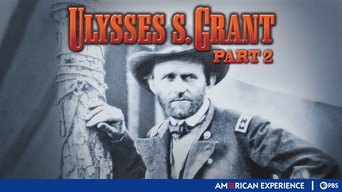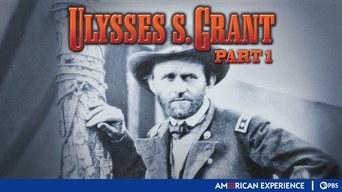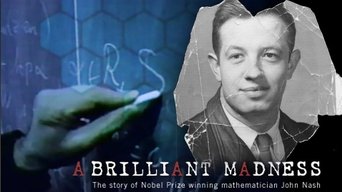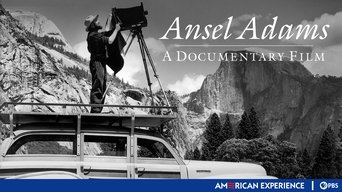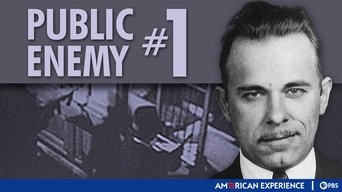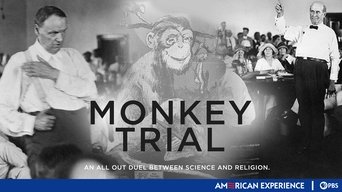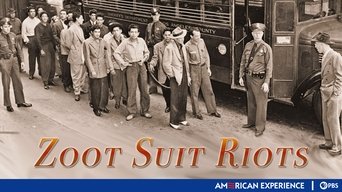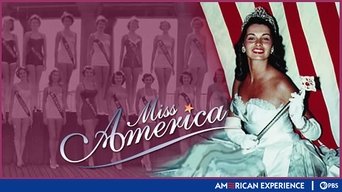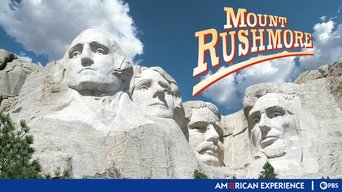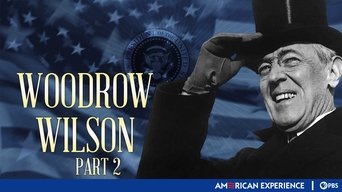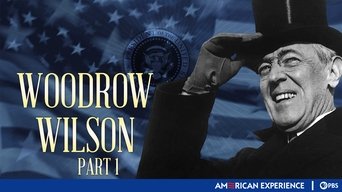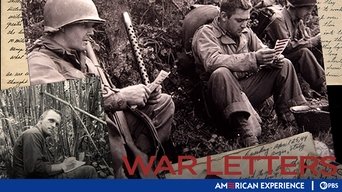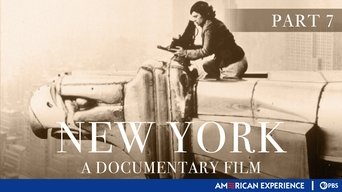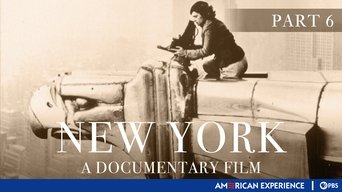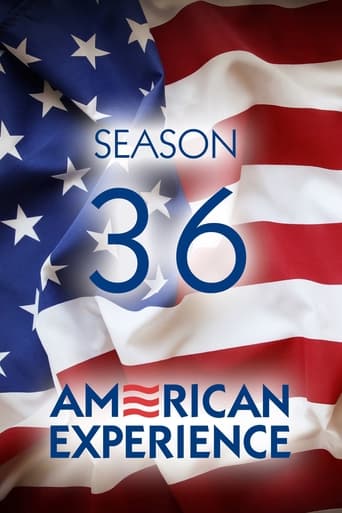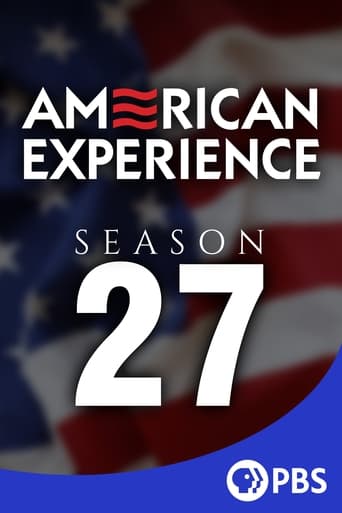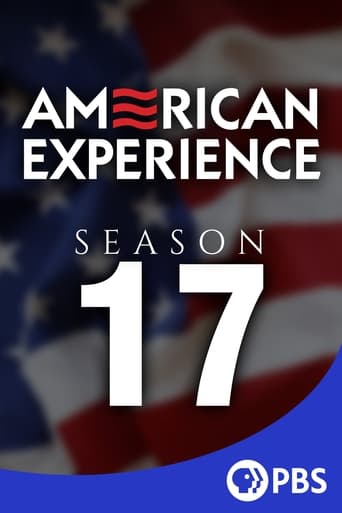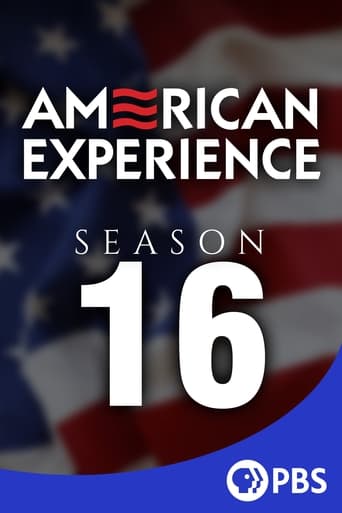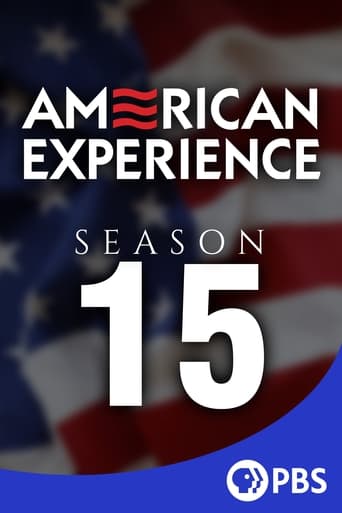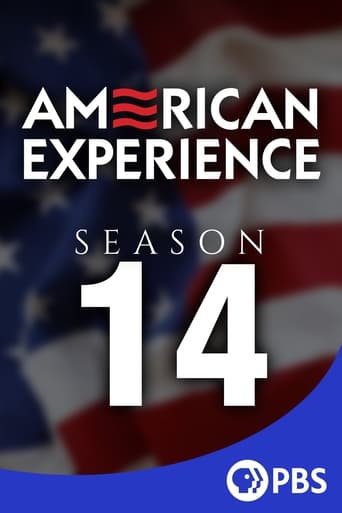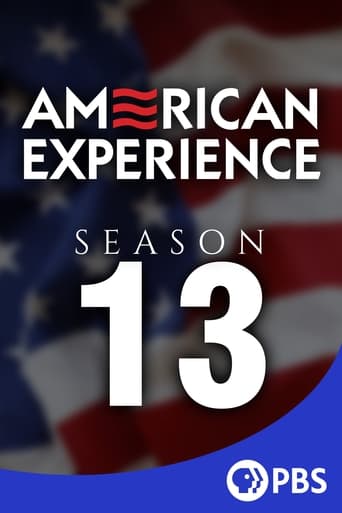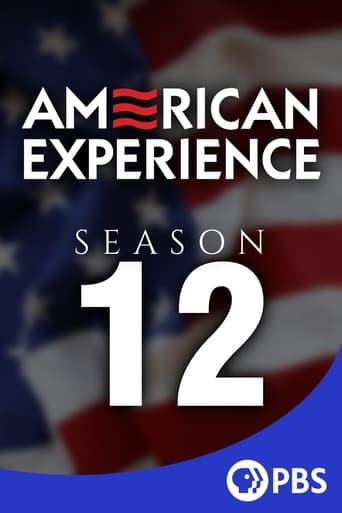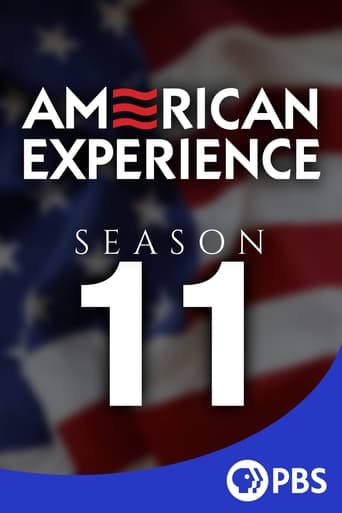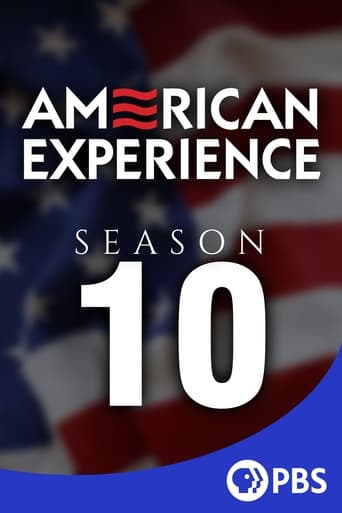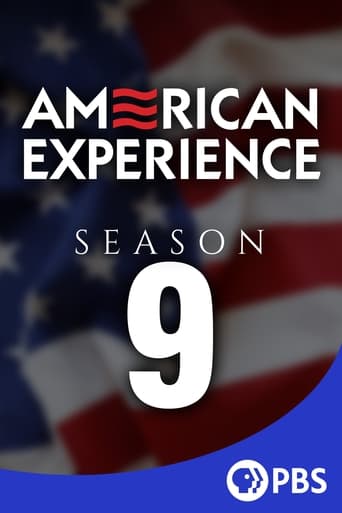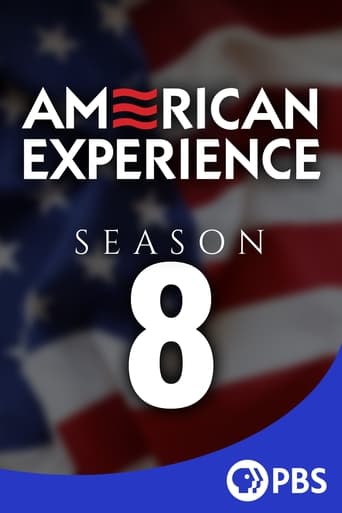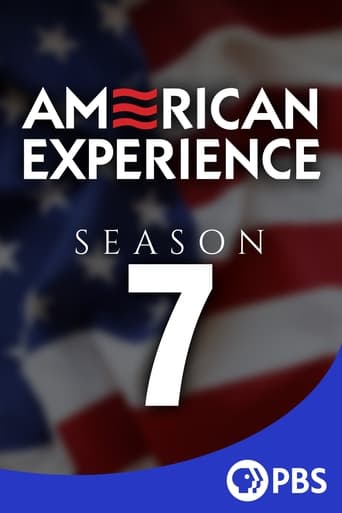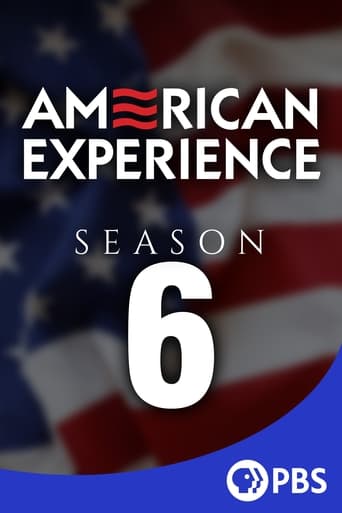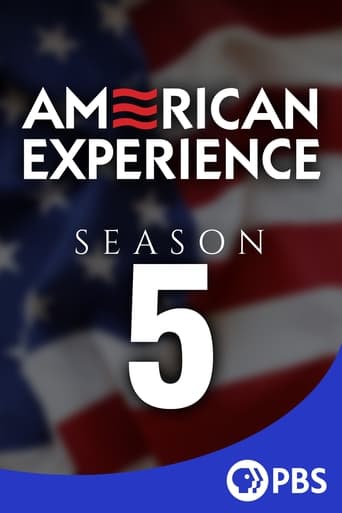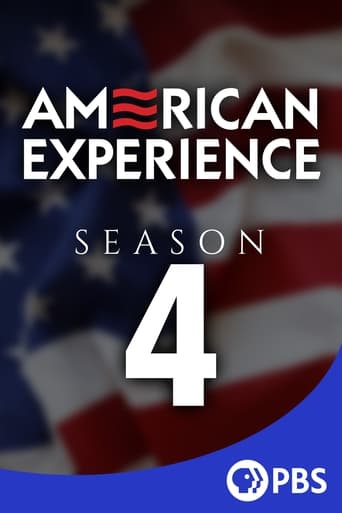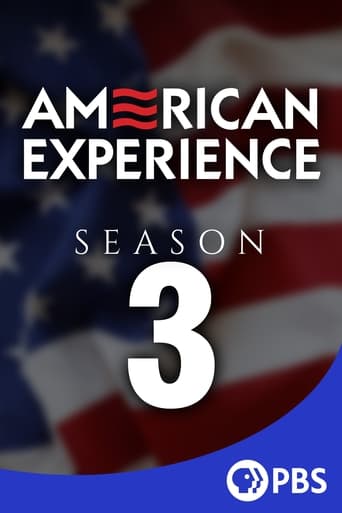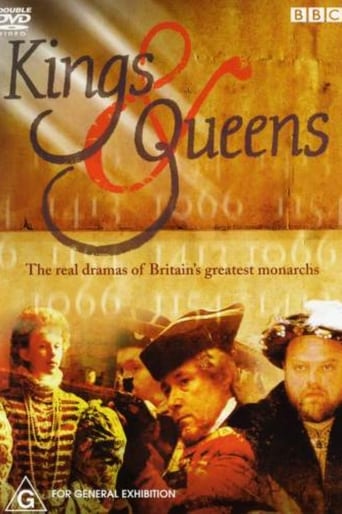American Experience Season 14
TV's most-watched history series brings to life the compelling stories from our past that inform our understanding of the world today.
With 30 Day Free Trial!
American Experience
1988 / TV-PG
TV's most-watched history series brings to life the compelling stories from our past that inform our understanding of the world today.
Watch Trailer
American Experience Season 14 Full Episode Guide
The conclusion of this biography of Ulysses S. Grant (1822-85) covers the last 20 years of the life of "the most popular man of the 19th century," as historian Donald Miller calls him. Grant's presidency (1869-77) wasn't the reason. "Military uniforms kept the sides straight on the battlefield, but in Grant's new world it was not so easy to tell friends from enemies," says narrator Liev Schreiber, and some of Grant's political "friends" were crooks. Add to that the intense opposition of white southerners to his Reconstruction policies. Then the U.S. economy went south during the panic of 1873.
A moody two-part biography of Ulysses S. Grant (1822-85). Part 1, "Warrior," quickly sketches his largely unsuccessful pre-Civil War life and ends on Good Friday 1865, when his wife told him to turn down a theater invitation because she didn't like the company of Mary Lincoln. During the war, Grant owed his success to his ability to treat his often unruly troops as he did his horses: calmly, firmly, quietly. But if he was a hero at Fort Donelson and Vicksburg, he's also described as being a "butcher" at Shiloh and Cold Harbor.
Mathematics genius John Nash recalls his bout with schizophrenia (the subject dramatized in the Oscar-winning film "A Beautiful Mind"). Nash is joined by his wife, Alicia; son John Stier; colleagues; and author Sylvia Nasar, who wrote the book from which the movie was adapted. They (and narrator Liev Schreiber) recall Nash's prodigious intellect, arrogant demeanor and odd behavior. He developed his "equilibrium point" theory as a student, but then lost his own equilibrium. It would take 30 years, but the theory would come to revolutionize economics and win him the Nobel Prize. And Nash would regain his mind.
Ric Burns' profile of the photographer whose connection to Yosemite is such that a mountain near the park is named for him. Adams (1902-84) first visited Yosemite at age 14. "It completely changed his life," says William Turnage, Adams' former business manager. Then his father gave him a Kodak Box Brownie and, as narrator David Ogden Stiers puts it, "he was off." Adams' career is recalled by colleagues, biographers, and his son and daughter.
John Dillinger may have been "Public Enemy No. 1" in 1933 and '34, but Americans didn't reflexively hate him, and this hour explores reasons why as it chronicles his 14-month bank-robbing spree. Dillinger "represents a rebellious impulse that many people in the Great Depression had good reason to feel," says Tom Doherty, one of the historians interviewed. Morever, "he was a charming guy," says another, Claire Potter. The hour also features a grandnephew of Dillinger and Alston Purvis, the son of Melvin Purvis, the G-Man who finally caught up with the Public Enemy.
Recalling the "epic battle" over evolution waged in 1925 by fundamentalist titan William Jennings Bryan and freethinking Clarence Darrow. This chronicle also explores trial oddities. It was held in Dayton, Tenn., because civic boosters wanted to put the town "on the map." Then there's John Scopes, the football coach (teaching science was a side job) who volunteered to be prosecuted. The offending book he used was Tennessee's "official" science text. Moreover, as he wrote in his memoirs, he didn't recall ever actually teaching evolution.
"Zoot Suit Riots" recalls a week of violence that rocked Los Angeles in June 1943, pitting Mexican-Americans against Anglos, many of them servicemen. Hector Elizondo narrates the hour, which uses atmospheric re-creations and interviews with historians and people who lived through it to chart a year of steadily rising tension leading up to the riots. One key event: an August 1942 altercation in which a young Mexican-American man died. The defendants were also Mexican-American, but the circus trial at which they were convicted inflamed prejudices and on June 3, 1943, says Elizondo, "the city exploded."
Recalling the 80-year history of the Miss America Pageant and what narrator Cherry Jones calls "a barometer of America's shifting ideas of American womanhood." Included: eight former Miss Americas recall their runway strolls -- and the world beyond Atlantic City during their reigns. Also: comments from historians and social observers, including Gloria Steinem, a beauty-pageant contestant herself as a teen. "It was glamorous," she says, perhaps surprisingly. Also surprising is Miss America 1998 Kate Shindle's view of the swimsuit competition. "It's empowering," she says. "If you can do that, you can do anything."
Chronicling the 16-year struggle (1925-41) to fashion Mount Rushmore in South Dakota's Black Hills, and profiling sculptor Gutzon Borglum, its creator. Borglum was 60 when plans for Rushmore were announced and he died not long after the final busts were completed. In between, money was often scarce and the granite from which the likenesses were hewn was crumbly. But Borglum wouldn't be denied, and he had foresight: He planned for 300,000 years' worth of weather erosion.
Woodrow Wilson reluctantly enters World War I in an effort to "make the world safe for democracy" as this two-part profile concludes. He wins the war but loses the peace, as he's confounded first by the French and British at the Treaty of Versailles in 1919; then by the Republicans in the Senate, who thwart U.S. entry into the League of Nations. Meanwhile, Wilson marries Edith Bolling-Galt (voice of Marion Ross) less than a year after his first wife dies. Edith would emerge as the President's virtual "regent" when Wilson suffers a stroke in 1919. Voice of Wilson: Rene Auberjonois.
A two-part profile of Woodrow Wilson in which news clips, atmospheric re-creations and readings (Rene Auberjonois and Blair Brown provide the voices of Wilson and his first wife, Ellen) supplement interviews with historians. Part 1 takes Wilson (1856-1924) from his Georgia childhood to the outbreak of World War I -- just as Ellen dies. "He's got to deal with the breakdown in the world," historian John Milton Cooper says. "And he's got to deal with the breakdown in his personal life."
War letters from the American Revolution to the Gulf War are read by 15 actors (including Joan Allen, Edward Norton, Kevin Spacey and Courtney B. Vance). Accompanied by clips, home movies and re-creations, the letters reflect the horror, boredom, anger and, mostly, fear that war engenders. Many readings are followed by notations that the writers had died, but the hour isn't unrelentingly grim. “Pucker up,” one WWII GI writes to his sweetheart on VJ Day. “Here I come.”
Conclusion. "The City and the World" begins in 1945, with New York "at the pinnacle," says historian David McCullough. By 1975 it was: "Ford to City: Drop Dead," as a Daily News headline put it. The program charts the city's decline as it follows what narrator David Ogden Stiers calls "a maelstrom of destruction in the name of urban renewal." Part and parcel of it were the highways Robert Moses built, many through vibrant neighborhoods. The city rebounded in the '80s.
"City of Tomorrow (1929-45)" focuses on Mayor Fiorello LaGuardia, who used his close ties to FDR to make the city "a gigantic laboratory of civic reconstruction"; and master builder Robert Moses, who "adapted a 19th century city to 20th century circumstances," says historian Kenneth Jackson. The biggest one: the car. Says narrator David Ogden Stiers: "It challenged all previous assumptions about urban life."
Free Trial Channels
Seasons





